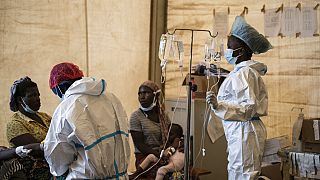cholera
An ancient affliction once pushed to the margins is reemerging worldwide — in 2025 already over 6,800 people have died of Cholera, marking an increase from the previous year. The disease is striking hardest in Africa, where conflict, poverty and poor sanitation give it fertile ground.
While effective vaccines and treatments exist, the main obstacle is political will and investment, not science. According to health analysts, only one major manufacturer produces the scale of vaccine required, leaving the global stockpile vulnerable. One bright spot: Zambia recently signed a partnership to build its own vaccine facility in collaboration with a Chinese firm, signalling a push toward African self-sufficiency.
However, long-term eradication hinges on more than vaccines. As the report states: “Stopping cholera is not a scientific, medical or technical challenge; fundamentally, it’s a political one.” Communities continue to suffer because they lack safe drinking water, sanitation and resilience to environmental shocks that spread the disease.
The message is clear: The world has the tools to stop cholera — now it must find the commitment to use them.











Go to video
How playing football can help protect girls from cervical cancer
01:00
Malawi launches cholera vaccine rollout
01:28
United States officially exits the World Health Organization
00:47
US YouTube star IShowSpeed celebrates 21st birthday in Lagos
Go to video
US House passes 3-year AGOA extension but South Africa's inclusion is unclear
01:09
Trump orders US withdrawal from 66 international organisations under ‘America First’ policy